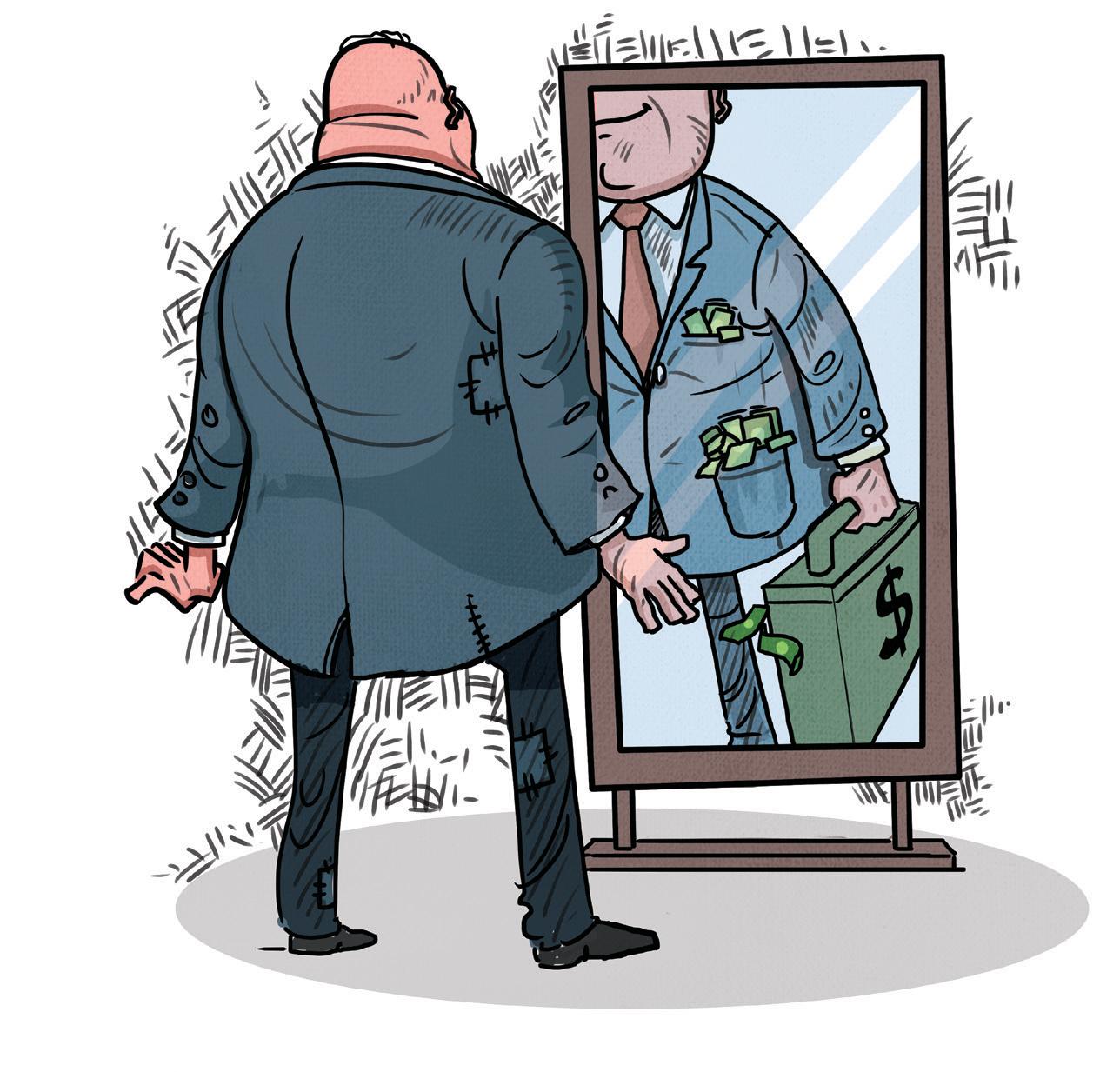Essayer OR - Gratuit
Post-pandemic blues of predatory pharma
Down To Earth
|November 16, 2023
Huge stockpiles of COVID-19 vaccines and treatments, along with a steep drop in revenues, tell a sorry tale of Big Pharma's greed
-

WHAT GOES up must come down.Everyone understands that. Businesses know that only too well, because most industries face market cycles. Not the pharmaceutical industry, though, which is insulated from these highs and lows because demand for medicines never goes down, whether the economy shrinks or expands. Now, as the panic and scramble for vaccines becomes a dark memory, Big Pharma is learning how unsustainable its pandemic high of soaring profits was. With projected offtake tapering off sharply since early 2022, especially in the US, a clutch of drug giants is seeing revenues drop by over 40 per cent. These figures reflect poorly on their role during the coVID-19 pandemic, when profits mattered much, much more than patients.
The pandemic years were marked by one of the biggest tussles between rich and developing countries at the World Trade Organization (WTO) over intellectual property rights (IPRS). Why IPRS? Because IPRS, which include patents and trade secrets, had a direct bearing on the ability of the world to meet the demand for desperately needed vaccines and therapeutics to fight COVID-19 through a host of generic companies if they were allowed to override patents during the pandemic. This column covered the issue extensively and predicted from the start that it was a lost cause. The US and the EU, where the vaccines to fight COVID-19 were developed, would not allow even a temporary waiver because of the powerful lobby of Big Pharma (see "Compromise' on TRIPS waiver is a sellout', Down To Earth, 1-15 April, 2022).
Cette histoire est tirée de l'édition November 16, 2023 de Down To Earth.
Abonnez-vous à Magzter GOLD pour accéder à des milliers d'histoires premium sélectionnées et à plus de 9 000 magazines et journaux.
Déjà abonné ? Se connecter
PLUS D'HISTOIRES DE Down To Earth

Down To Earth
THINK TWICE BEFORE FELLING SAL TREES
Many trees considered to be affected by sal borer in the 1990s are still alive today
1 mins
February 16, 2026

Down To Earth
EDGE OF SURVIVAL
Caste divides deny marginalised communities land, resources and essential aid, leaving them more vulnerable to climate disasters
6 mins
February 16, 2026

Down To Earth
A WISH LIST?
Union Budget for 2026-27 conveys the impression of a roll-call of intentions and ambitious proposals, with little detail on their formulation
6 mins
February 16, 2026
Down To Earth
Break down the gender wall
THE RULING National Democratic Alliance (NDA) government has been heavily invested in the goal to make India a developed economy by 2047.
2 mins
February 16, 2026

Down To Earth
MENSTRUAL HEALTH, NOW A FUNDAMENTAL RIGHT
In a landmark judgement, the Supreme Court has recognised menstrual health and hygiene as a fundamental right under Article 21 of the Constitution of India, which guarantees the right to life and dignity.
8 mins
February 16, 2026

Down To Earth
Of devolution and new disasters
The 16th Finance Commission pushes for changes in view of new fiscal and climatic conditions
11 mins
February 16, 2026
Down To Earth
Rising risks of plastics
NEGATIVE IMPACTS on human health due to emissions linked to the plastic lifecycle could double by 2040, according to a study published in The Lancet Planetary Health in January.
1 min
February 16, 2026

Down To Earth
GAP BETWEEN EPIDEMICS NARROWING
A watershed-based and landscape-level approach is needed to address forest degradation
2 mins
February 16, 2026

Down To Earth
WAITING TO STRIKE
Sal heartwood borer is considered the biggest threat to forestry in India, especially to the sal tree, where it lives and breeds.
11 mins
February 16, 2026

Down To Earth
A SPRING DELIGHT
Mustard flowers are not meant only for the eyes. Invite them to your plate once in a while
3 mins
February 16, 2026
Translate
Change font size
